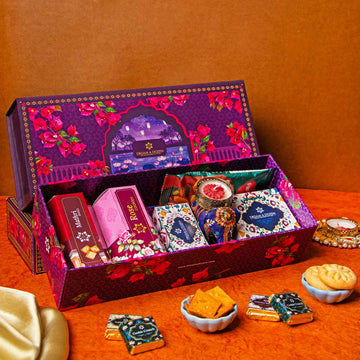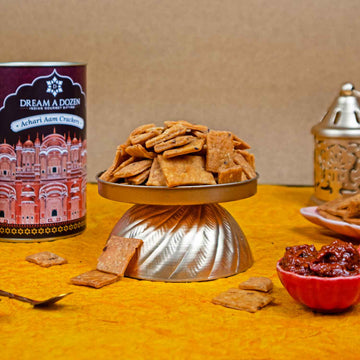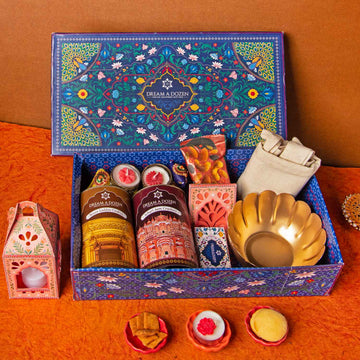When I aspired to be an entrepreneur, I didn't like the idea of being called a small business. I always wanted to be a big business.
Sometimes, I go through the business plan we presented in college. By 2021, we had already expanded to 6 kitchens and 3 cities across India as per our forecast. It's funny - how we imagined growth to work. Yet, I'm sitting right here, in the first quarter of 2021 - and I am still at my first kitchen of my first city. Could I have done things differently? Yes, I could have. Would that have accelerated growth at the speed of 10x? I don't think so.
What we don't realize from that sentence is that the foundation for the brand that she has built started much before she actually started the business. Her mom was selling the same brownie to restaurants across mumbai when they were kids. Her dad was a business man, they had the know-how and initial capital of 1crore, so she started with an injection of money and experience even before her own entrepreneurial journey began. This is not to take away credit from the empire she has built, but it's just to remind yourself (or maybe I'm just speaking about myself) not to compare another person's trajectory to your own.
However, as I entered "the real world," I came to realize that most of India is actually employed by homegrown businesses that have done incredibly well for themselves. If these businesses have managed to stand the test of time, then the generations that took over have also created an immense amount of wealth for both the Indian economy and their families. Haldiram - that is a 5,000 crore empire and into it's 4th generation, is one of the best examples of this.
When I had just started on my own, our clients also gave us a shout-out on social media and appreciated our work a lot more. As we have grown, those clients still buy from us and love the product - but don't necessarily feel it's important to keep posting Instagram stories over the years.
From our standpoint, I'd appreciate it if the overwhelming support was always there - but it is human nature to root for the underdog. And as you grow, you are no longer the underdog.
I can take another example of a local signboard shop that was near our older kitchen. We had a small signboard there, but he still assisted me in creating it and didn't persuade me to spending more money on it because he saw that we were starting off too. Now that we have moved into a larger space, and we will need multiple signboards by spending 20x of what we previously spent - I am inclined towards giving him my business. Only because he helped me when I was small.
"I have a very different take on this coming from a big event management company and having worked at smaller businesses. I felt like the ownership at the big companies is so much more because you’re tied to a company which is reputable. There are no rooms for error and you have a lot more responsibility to you and your team. If you mess up, it’s your team you’re letting down, the company. As opposed to a small company where there are just 2 people. More often than not these small companies get really close to the family because they do the whole event end to end as opposed to a big company where they send someone for creatives, someone else for technical and operations. So when they mess up, it’s easier for them to tell the family - this won’t be possible, we’ll do something else. In a big company, the option of doing something else isn’t an option at all. If that’s the ask, it’s delivered. "
1. If you were spending a large amount of money in an event - would you rather give the project to a small business owner or a large established company?
Ans: 66% of the people who replied said they'd give it to a small business. However, I'm truly doubtful that they would choose a small person for their own wedding.
2. Do you think a small business is more trustworthy or a large reputed company?
Ans: 78% of the people who replied said they think small businesses are more trustworthy.
3. Once a small business grows big, do you have the same kind of trust in their product?`4
Ans: The average answer was that if the owner is still present, they would have the same trust.
4. Do you think the quality of products from small businesses are almost always better?
Ans: 70% of the people who answered said yes.












